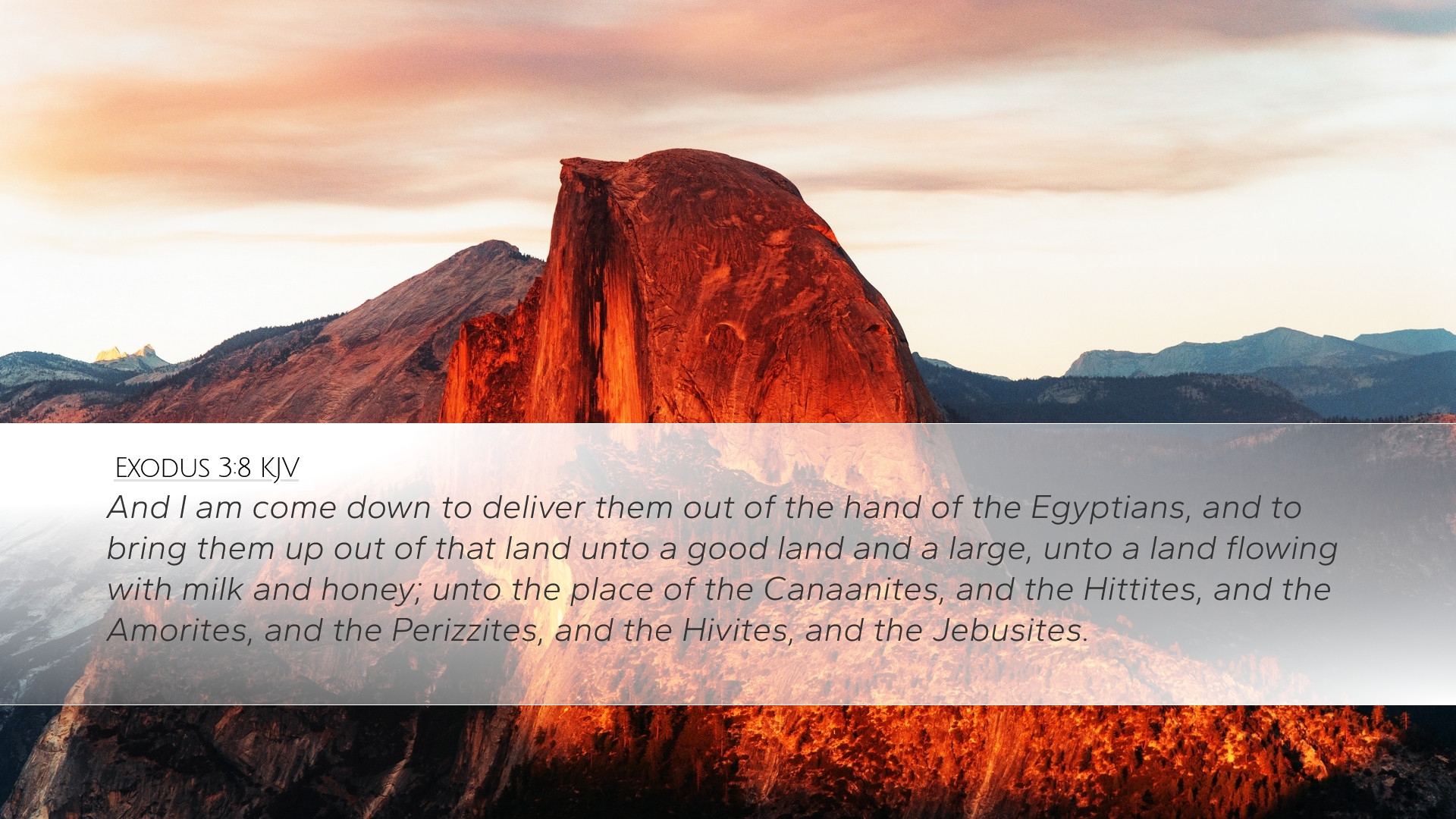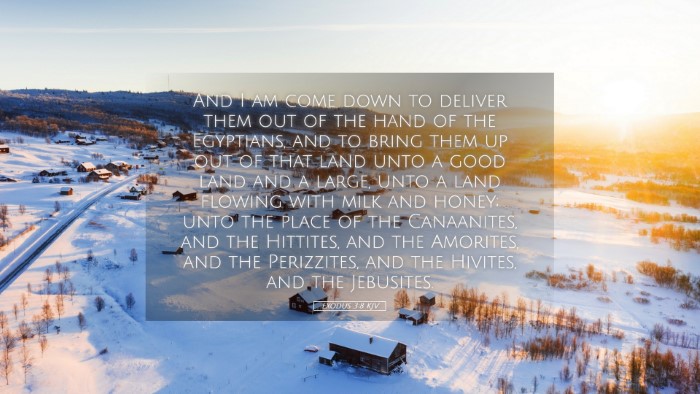Exodus 3:8 - Commentary and Analysis
Text of Exodus 3:8 (KJV): "And I am come down to deliver them out of the hand of the Egyptians, and to bring them up out of that land unto a good land and a large, unto a land flowing with milk and honey; unto the place of the Canaanites, and the Hittites, and the Amorites, and the Perizzites, and the Hivites, and the Jebusites."
Introduction
This pivotal verse in the Book of Exodus reveals God's intention to liberate the Israelites from their oppression in Egypt and lead them to a land of abundance. This moment signifies a profound transition in the history of God's chosen people and sets the stage for the people’s journey toward the Promised Land.
Theological Significance
The divine announcement in Exodus 3:8 communicates God's active participation in history. It affirms His commitment to His covenant with Abraham, Isaac, and Jacob. Here, God directly intervenes in the plight of His people, illustrating His nature as a deliverer and provider.
God as Deliverer
Matthew Henry notes the significance of the phrase "I am come down," emphasizing God's condescension and intimate involvement with His people. God’s promise to deliver the Israelites highlights His compassion and power over oppression:
- Divine Initiative: God takes the first step, demonstrating His sovereignty.
- Covenantal Faithfulness: This act reiterates the promise bestowed upon the patriarchs.
- Restoration of Relationship: God seeks to restore His people to a right relationship with Him by liberating them.
The Promise of a Good Land
Albert Barnes expounds on the phrase "a good land and a large," pointing out the abundant and fruitful nature of Canaan. This is presented as a stark contrast to the oppression and scarcity experienced in Egypt:
- Land of Abundance: The description "flowing with milk and honey" indicates prosperity and God's blessings.
- Spiritual Relevance: The promised land serves as a metaphor for the spiritual promises God extends to His people today.
- Inclusiveness of God’s Plan: God's promise extends beyond the immediate context, manifesting His larger plan for humanity.
Historical Context
Understanding the context of Exodus 3:8 is crucial for grasping its depth. The Israelites had been in bondage for centuries, and the mention of their suffering evokes a profound sense of urgency. Adam Clarke emphasizes the historical significance of God’s promise against the backdrop of Israel's labor:
- Oppression in Egypt: The Israelites’ plight underscores the need for liberation and divine intervention.
- God’s Response to Cry: This moment articulates God’s responsive nature to the cries of His people.
- Preparation for Leadership: The calling of Moses is significant as he prepares to lead the Exodus and navigate this new promise.
Implications for Today
Exodus 3:8 not only speaks to the historical context of Israel but carries profound implications for contemporary readers:
- Divine Presence: God’s willingness to "come down" reflects His persistent presence in our lives, particularly in times of struggle.
- Hope and Restoration: This scripture offers hope for individuals facing their own forms of oppression or hardship, promising their own deliverance.
- Call to Action: Just as God delivered a people, He invites His followers to participate in acts of justice and mercy for the oppressed today.
Conclusion
In summary, Exodus 3:8 encapsulates God's character as a deliverer and provider, speaks to His historical faithfulness, and invites believers into a deeper understanding of His promises. The imagery of a land flowing with milk and honey symbolizes not only physical sustenance but also the richness of God’s spiritual provision. Scholars and theologians alike are called to reflect on how these ancient truths continue to resonate and hold relevance in modern contexts.


